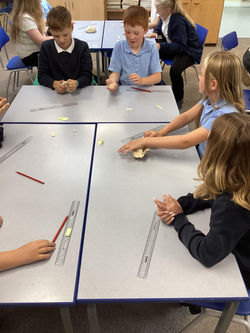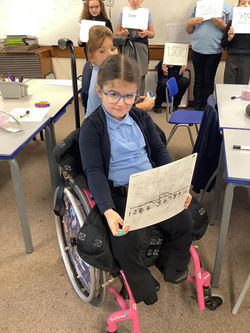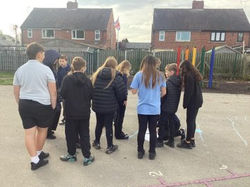Data and Performance
How do we ensure your child is receiving the very best education possible?
As a new academy school, we have not yet been inspected by Ofsted and MANY changes have occurred since the last inspection in January 2017, which can be viewed here.
We have a robust self-evaluation system in place and constantly strive for excellence.
Our staff are highly motivated in making our school a hub for learning where all children are able to achieve.
How do we self evaluate?
-
Child Centred Plans
-
Data Analysis
-
Observation of Teaching & Learning
-
Peer to Peer Coaching
-
Work Scrutiny
-
Pupil Progress Meetings
-
Continuing Professional Development (CPD)
Our School Improvement Goals
-
To develop outstanding behaviour for learning
-
To refine our curriculum design
-
To fully embed English Mastery
-
To fully embed Maths Mastery
What this looks like in the classroom
-
A minimum of "Good" teaching throughout the school
-
Quality resources
-
Consistency in all areas
-
Outward thinking learning themes
-
Good attainment
-
Good progress
-
Parent/Carer and school collaboration
-
Examples of both our learning values and Christian values in action
-
Children being Ready, Respectful, Safe
2018-2019 Data Headlines
End of Key Stage 2
Writing: 90.1% of children reached Age-Related Expectation, 18.2% of whom achieved Greater Depth
Reading: 100% of children reached Age-Related Expectation, 63.6% of whom achieved Greater Depth
Maths: 90.1% of children reached Age-Related Expectation, 18.2% of whom achieved Greater Depth
SPaG: 90.1% of children reached Age-Related Expectation, 45.5% of whom achieved Greater Depth
Maths at Kiveton Park Meadows Junior School
Here, you will find details about the National Curriculum for mathematics and how we integrate maths into our learning journeys at Kiveton Park Meadows Junior School.
Our Goals
At Kiveton Park Meadows, from the very start in Year 3, our maths curriculum nurtures confident, curious, and resilient mathematicians. Using the White Rose Maths Scheme, we follow a structured, mastery-based approach designed to deepen understanding through fluency, reasoning, and problem-solving.
Children develop their mathematical thinking step by step, ensuring strong foundations that allow them to apply their knowledge to real-world situations. Our approach focuses on building confidence, perseverance, and a love of learning maths, empowering every child to achieve success and enjoy the challenge of problem-solving.
Why Maths Matters
Developing children’s mathematical skills, logical reasoning, and problem-solving abilities through a structured curriculum not only strengthens their academic progress but also prepares them with essential life skills. Our maths curriculum promotes curiosity, resilience, and independence, helping children to:
-
Tackle problems with confidence
-
Think creatively and logically
-
Apply mathematical understanding to everyday contexts
Through engaging, hands-on learning experiences, our pupils gain the ability to see maths as relevant, enjoyable, and vital for success beyond school.
Our Maths Curriculum
At Kiveton Park Meadows, maths is taught primarily through the White Rose Maths Scheme, which supports our mastery approach. Lessons follow carefully sequenced small steps that allow all children to make sustained progress.
Our teaching follows a Concrete–Pictorial–Abstract approach:
-
Concrete: children use manipulatives such as counters, cubes, and base ten to explore concepts.
-
Pictorial: they represent their ideas using images, diagrams, or models.
-
Abstract: they apply their understanding to calculations and problem-solving.
-
Children experience a balance of fluency, reasoning, and problem-solving across all areas of maths. We use NumberSense to develop number fluency and confidence.
Our curriculum is further enriched by:
-
NRICH challenges to develop reasoning and extend thinking
-
Times Tables Rock Stars (TTRS) to improve fluency and recall of multiplication and division facts
-
Weekly rewards and recognition for effort and achievement in maths
How Maths is Taught
Maths is taught through:
-
Daily structured lessons following the White Rose Scheme throughout Y4, Y5 and Y6.
-
In Y3, lessons are planned using the NCETM curriculum prioritisation and spine materials. This will then progress to other year groups in subsequent years.
-
Small-step learning sequences that ensure depth and mastery
-
Guided and independent practice to build confidence
-
Collaborative problem-solving and discussion to promote reasoning
-
Ongoing formative assessment to address misconceptions quickly
Learning is practical, engaging, and differentiated so that every child can achieve success.
Supporting Every Learner
Our maths curriculum is inclusive and designed to meet the needs of all learners. For children with SEND or those who may need additional support, we use:
-
Concrete resources (manipulatives, number lines, base ten)
-
Visual supports and structured templates
-
Simplified steps and scaffolded tasks
-
Interactive games and sensory-based activities
These adaptations ensure that all pupils can access mathematical concepts and experience success.
Pupil Voice
“I like a really hard maths challenge!”
“Maths is fun because we get to use loads of resources.”
“Our teachers make maths really interesting.”
“We love learning new strategies and getting good at them.”
“I find Times Tables Rock Stars really helps me with my times tables.”
“I feel more confident now because we go over things until they make sense.”
Showcase
 |  |  |
|---|---|---|
 |  |  |
 |  |  |
 |  |  |
 |  |  |
 |  |  |
 |  |  |
 |  |  |
 |

